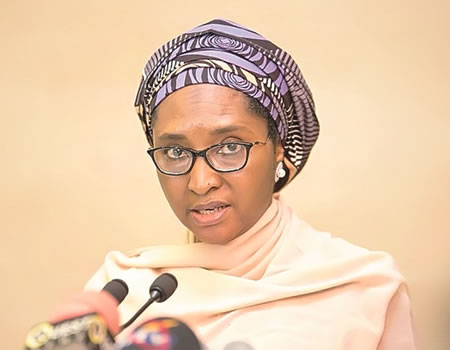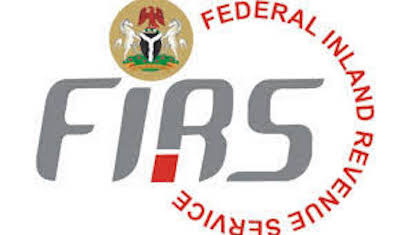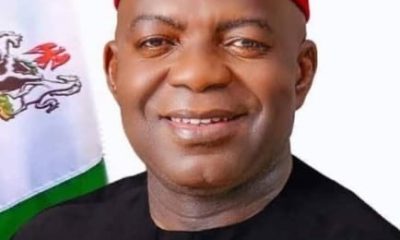Business News
Still on Stamp Duty Controversy Presidency

By Mathew Dadiya, Abuja
President Muhammadu Buhari came into office in 2015 to find that a law, which stipulated for the collection of a token on banking transactions existed but was not being correctly implemented
This anomaly arose because certain characters apparently formed a cartel with collaborators in the Nigerian Postal Service, NIPOST and were allegedly collecting and pocketing this money.
Soon after, a non-government organization posited to the administration that the Nigerian government had lost the sum of over N20 trillion to the Nigerian Inter-bank Settlement System ((NIBSS) between 2013-2016 in this regard, claiming that the said sum could be recovered and paid back into the government coffers.
The consultants asked to be paid a professional fee of 7.5 percent and were placed under the supervision of the Secretary to the Government of the Federation, SGF.
Following the lack of progress in the promised recovery, the late Chief of Staff to the President, Abba Kyari wrote on March 8, 2018 to the SGF conveying a presidential directive that following the lack of progress and several expressed concerns received, the activities of the consultants be discontinued.
In the aftermath of this dismissal, the consultants sued the government.
A court of competent jurisdiction subsequently ruled in favour of the government.
Arising from the outcome of the litigation and the well known controversy on the legally responsible agent for collecting this levy, the administration went to the National Assembly and caused an amendment to the law and removed NIPOST from the duty of its collection.
Having lost a potentially “lucrative” line of “business,” the sacked characters returned to the drawing board to formulate one form of trick or another to intimidate the government but the vigilant teams of the administration kept them at bay.
Lately, they returned to the government through Hon. Muhammadu Gudaji Kazaure with a plan to track the so-called lost stamp duties with the erstwhile consultant as chairman and Hon. Gudaji as secretary.
When it emerged that the petitioner and lead consultant of the committee the President had dissolved via the late Abba Kyari’s letter of March 28 had masqueraded himself and re-emerged as the chairman of the new recovery committee championed by the Hon. Gudaji, the President rescinded the approval he gave and asked that it be stopped from operating under the seal of his office.
In addition to this committee being chaired by a petitioner, there were also other concerns relating to natural justice and fair hearing in having the Chief Justice of the Federation as a committee member and a serving member of the House of Representatives as Secretary, which are not in line with Section 5(1),(a)&(b) of the 1999 constitution of the Federal Republic of Nigeria (as amended).
Once the President rescinded his approval to constitute this Committee, lost all legitimacy.
Arguments have in recent days been flying left and right over the rightfulness of a committee being dissolved.
People are entitled to hold opinions. But these opinions do not change the fact that under our constitution, the power of the president to appoint and remove persons or groups is duly entrenched and unless such powers are shared with the Parliament, the President can hire and fire literally at will, and in line with the law.
To go back to the main issue though, it is now evident that the consultants and petitioners’ claims of a missing N89 trillion from stamp duty appears false and a figment of their malicious imaginations.
The same set of consultants claimed in 2016 there was N20 trillion to be collected. It was found to be false. The entire banking sector deposit is not even up to half of N89 trillion.
Indeed, if the Federal Government can find N89 trillion Naira, it can pay off all its debt, both foreign and local currency and all state government debts and still have over N10 trillion left.
So, the claim by these so-called consultants and the disbanded committee is totally ridiculous and a complete mockery.
Our good friend and a committed party member, Hon Gudaji has tried to draw me into a public debate which I don’t consider a good idea.
In a video clip in Hausa and a press release in English both by this good friend of the administration, Hon. Gudaji Kazaure, invited me to answer questions, some of which are completely lacking in imagination.
I would have ignored the allegations therein. Yet, a wise man once said that a lie can travel the world while the truth is still wearing his shoes.
It is on the basis of the above that I decided to put some things straight and respond directly to Hon. Kazaure’s questions posed to me.
Specifically, I will respond to each of his questions as follows:
(A) “The money with CBN I & E window Account stood at $171 billion dollars as at 2020 what is the source of that money?”
To my knowledge, the CBN-established Investors and Exporters (I&E) Window is a foreign exchange trading platform where banks and other authorized dealers can buy or sell foreign exchange. These trades are recorded by the CBN daily and reported as turnover or activity in the market.
Contrary to Hon. Kazaure’s assertion, the I&E window is NOT an “account” where foreign exchange is deposited. It is simply a platform for trading foreign exchange. As of April 2020, the total amount of foreign exchange traded (either bought or sold) in the window was about $171 billion. The size of this amount suggests that there is adequate liquidity or availability of foreign exchange and that anyone who wants to buy or sell would easily find a counterparty to trade with. The amount does not mean that we have $171 billion stacked away in some vault or saved in any account.
Note that both the CBN and authorized dealers are free to bring foreign exchange to the window, and in fact, the CBN is not the major seller of Foreign Exchange in that segment of the market.
(B) “The N23.4 trillion CBN gave as a loan to some banks, what is the source of that money?”
The CBN is best placed to respond to this question though I must say the assertion itself is both baseless and misleading. The total balance sheet of the CBN is not anywhere near N23 trillion. So how can it give such an amount in loans to any or some banks?
(C) “The N13 trillion loan to the federal government from FMDQ, what is the source of that?”
According to the DMO, the total amount of Nigeria’s domestic debt as of September 2022 is N21.6 trillion. Is Hon. Kazaure suggesting that a small company in Lagos holds over 60 percent of Nigeria’s domestic debt? More also, of the N21.6 trillion domestic debt, only N4.5 trillion are in Treasury Bills? How then can a company in Lagos hold more treasury bills (N13 trillion) than the entire treasury bills issued by the Federal Government? For the avoidance of doubt, I also took time to reach out to the FMDQ ( Financial Markets Derivative Quotes) and understand from their audited financial statements that their holdings of FGN Treasury bills is just N7.99 billion as of December 2021.
(D) “Finally, what is the total equity of CBN and its National budget?”
Anyone who understands this question should provide an answer. I can offer this information: on an annual basis and in line with the Fiscal Responsibility Act, the CBN transfers 80 percent of its operating surplus to the Federal Government as part of the budget revenues. In the last 6 years, this contribution has amounted to over N150 billion.
Let me inform, that Mr. President has not completely ignored these matters. Indeed, a duly authorized committee under the Attorney-General and Minister of Justice, Abubakar Malami (SAN) is working to reconcile, recover and transfer all Stamp Duties into Stamp Duties Central Account.
The work is ongoing, it is not finished yet and the President will continue to show his keen interest in the matter of Stamp Duty collection.
Business News
Tinubu Congratulates Dangote on World Bank Appointment

By Jennifer Enuma, Abuja
President Bola Tinubu has congratulated Alhaji Aliko Dangote, the President of Dangote Group, on his appointment to the World Bank’s Private Sector Investment Lab, a body tasked with promoting investment and job creation in emerging economies.
In a statement by Special Adviser on Media and Publicity, Bayo Onanauga, the President described the appointment as apt, given Dangote’s rich private sector experience, strategic investments, and many employment opportunities created through his Dangote Group.
The Dangote Group became one of Africa’s leading conglomerates through innovation and continuous investment.
Dangote Group’s business interests span cement, fertiliser, salt, sugar, oil, and gas. However, the $20 billion Dangote Petroleum Refinery and Petrochemicals remains Africa’s most daring project and most significant single private investment.
“President Tinubu urges Dangote to bring to bear on the World Bank appointment his transformative ideas and initiatives to impact the emerging markets across the world fully” the statement said.

The World Bank announced Dangote’s appointment on Wednesday, as part of a broader expansion of its Private Sector Investment Lab. The lab now enters a new phase aimed at scaling up solutions to attract private capital and create jobs in the developing world.
The CEO of Bayer AG, Bill Anderson, the Chair of Bharti Enterprises, Sunil Bharti Mittal, and the President and CEO of Hyatt Hotels Corporation, Mark Hoplamazian, are on the Private Sector Investment Lab with Dangote.
The World Bank said the expanded membership brings together business leaders with proven track records in generating employment in developing economies, supporting the Bank’s focus on job creation as a central pillar of global development.
Business Analysis
Nigeria Customs Generates over N1.75trn Revenue in 2025
By Joel Oladele, Abuja
The Nigeria Customs Service (NSC) has generated an impressive N1,751,502,252,298.05 in revenue during the first quarter of 2025.
The Comptroller-General (CG) of the Service, Bashir Adeniyi, disclosed this yesterday, during a press briefing in Abuja.
According to Adeniyi, the achievement not only surpasses the quarterly target but also marks a substantial increase compared to the same period last year, reflecting the effectiveness of recent reforms and the dedication of customs officers across the nation.
“This first quarter of 2025 has seen our officers working tirelessly at borders and ports across the nation.
I’m proud to report we’ve made real progress on multiple fronts—from increasing revenue collections to intercepting dangerous shipments,” Adeniyi stated.He attributed this success to the reforms initiated under President Bola Tinubu’s administration and the guidance of the Honourable Minister of Finance and Coordinating Minister of the Economy, Olawale Edun.
The CG noted that the revenue collection for Q1 2025 exceeded the quarterly benchmark of N1,645,000,000,000.00 by N106.5 billion, achieving 106.47% of the target. This performance represents a remarkable 29.96% increase compared to the N1,347,705,251,658.31 collected in Q1 2024.
Adeniyi highlighted the month-by-month growth, noting that January’s collection of N647,880,245,243.67 surpassed its target by 18.12%, while February and March also showed positive trends.
“I’m pleased to report the Service’s revenue collection for Q1 2025 totaled N1,751,502,252,298.05.
“Against our annual target of N6,580,000,000,000.00, the first quarter’s proportional benchmark stood at N1,645,000,000,000.00. I’m proud to announce we’ve exceeded this target by N106.5 billion, achieving 106.47% of our quarterly projection. This outstanding performance represents a substantial 29.96% increase compared to the same period in 2024, where we collected N1,347,705,251,658.31.
“Our month-by-month analysis reveals even more encouraging details of this growth trajectory,” Adeniyi said.
In addition to revenue collection, Adeniyi said the NCS maintained robust anti-smuggling operations, recording 298 seizures with a total Duty Paid Value (DPV) of ₦7,698,557,347.67.
He stated that rice was the most seized commodity, with 135,474 bags intercepted, followed by petroleum products and narcotics.
“From rice to wildlife, these seizures show our targeted approach,” Adeniyi remarked, noting the NCS’s commitment to combating smuggling and protecting national revenue.
Adeniyi also highlighted key initiatives, including the expansion of the B’Odogwu customs clearance platform and the launch of the Authorized Economic Operators Programme, which aims to streamline processes for compliant businesses. The NCS’s Corporate Social Responsibility Programme, “Customs Cares,” was also launched, focusing on education, health, and environmental sustainability.
Despite these achievements, the CG noted that the NCS faced challenges, including exchange rate volatility and non-compliance issues. Adeniyi acknowledged the need for ongoing adaptation and collaboration with stakeholders to address these challenges effectively.
Looking ahead, the NCS aims to continue its modernization efforts and enhance service delivery, ensuring that it remains a critical institution in Nigeria’s economic and security landscape.
“Results speak louder than plans; faster clearances through B’Odogwu, trusted traders in the AEO program, and measurable food price relief from our exemptions. We’ll keep scaling what works,” he concluded.
BUSINESS
NSIA Net Assets Hit N4.35trn in 2024
By Tony Obiechina Abuja
The Nigeria Sovereign Investment Authority (NSIA) yesterday disclosed that its net assets grew from N156bn in 2013 to N4.35 trillion in 2024.
Similarly, the Authority has remained profitable for 12 consecutive years, leading to cumulative retained earnings of N3.
74 trillion in 2024.Managing Director and Chief Executive Officer of NSIA, Aminu Umar- Sadiq made these disclosures at a media engagement in Abuja, highlighting its audited financial results for the 2024 fiscal year.
According to him, the results underscored the resilience of the authority’s investment strategy and the strength of its earnings, driven by a well-diversified revenue base and robust risk management practices, despite a challenging global macroeconomic and geopolitical environment.
Total operating profits, excluding share of profits from associates and Joint Venture (JV) entities, increased from N1.17 trillion in 2023 to N1.86 trillion in 2024, driven by the strong performance of
NSIA’s diversified investment portfolio, infrastructure assets, gains from foreign exchange movements, and derivative valuations.
In addition, Total Comprehensive Income (TCI), inclusive of share of profits from associates and JV entities, reached N1.89 trillion in 2024, reflecting a 59 per cent increase from N1.18 trillion in 2023.
Core TCI (excluding foreign exchange and derivative valuation gains) rose by 148 per cent to N407.9 billion in 2024 compared to N164.7 billion in 2023, supported by robust returns on financial assets measured at fair value through profit and loss, including collateralised securities, private equity, hedge funds, and Exchange-Traded Funds (ETFs).
Umar-Sadiq said the authority’s outstanding financial performance in 2024 reflected the “strength of our strategic vision, disciplined execution and unwavering commitment to sustainable socio-economic advancement.”
He said, “By leveraging innovation, strategic partnerships and sound risk management, we have not only delivered strong returns but also created value for our stakeholders
“As we move forward, we remain focused on driving economic transformation, expanding opportunities, scaling transformative impact and ensuring long-term prosperity for current and future generations of Nigerians.”
The CEO reaffirmed the authority’s commitment to managing the country’s SWF, and delivering the mandates enshrined in the NSIA Act.
He said NSIA remained poised to continually create long-term value for its stakeholders by delivering excellent risk-adjusted financial results, developing a healthy and well-diversified portfolio of assets and large-scale infrastructure projects, and enhancing the desired social outcomes.
He noted that NSIA was committed to its mandate of prudent management and investment of Nigeria’s sovereign wealth.
“In adherence to its Establishment Act, NSIA prioritises transparency, disclosure, and effective communication with all stakeholders and counterparties,” he said.
He pointed out that in the year under review, a new board, led by Olusegun Ogunsanya as Chairman, was appointed by President Bola Tinubu, in accordance with the provisions of the NSIA Act.
The new board will provide strategic direction and oversight, in addition to playing a pivotal role in critical decision making.
He remarked that under the guidance of the Board, the Authority will retain focus on its primary mandate of creating shared value for all stakeholders based on its continued adoption of corporate governance practices.
“NSIA prides itself an investment institution of the federation established to manage funds in excess of budgeted oil revenues and its mission is to play a pivotal role in driving sustained economic development for the benefit of all Nigerians through building a savings base for the Nigerian people, enhancing the development of the county’s infrastructure, and providing stabilisation support in times of economic misadventure,” he added.



















